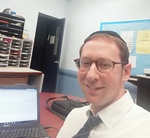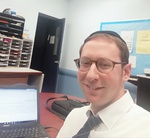
An artist completes the final touches on a painting. A musician adds a bit of flair to their rendering. An athlete steals a pass without looking. The significance of instincts in areas of unique talent are obvious.
But the use of our instincts is something we engage in countless areas of life. We stop eating food that tastes off. We have a sense of when and how to change lanes when driving. We intuit what jokes we say will be funny, what gifts will be appreciated, and even which excuses will be tolerated.
It therefore might seem strange to suggest to someone not to trust their instincts, but that is exactly what I am about to do. For certain times, anyway.
Mo possessed exceptional interpersonal skills; he was considered a networking genius. He was a phenomenal athlete - even into his thirties. He was clever and creative. Also, he was always late. His sense of style in marketing and instincts with a football didn't compensate for his lack of understanding of time.
He might insist that writing an email would take "just a minute," but then it would take ten. He could claim that a fifteen-minute drive would take him twelve minutes if the traffic lights would all work in his favor, hoping that they would. Instead, though, the trip would take him half an hour because he didn't factor in the walk from the office to the car, the trip to the bathroom, or the search for a parking spot. Also, the traffic lights did not all work in his favor. His excellent instincts in other areas did not convert to success in this one.
Aaron was the prototypical “life of the party” personality type. He could liven up any occasion with his raucous laugh, captivating storytelling, and fun spontaneity. But sometimes he could take a joke too far. It could be a joke at someone else’s expense that crossed a line of propriety, or continuing to rant about a subject without realizing that the bit had long overstayed its welcome. It reached the point where people would think twice before inviting – or hiring – him.
Sara was thirty-four and was not yet married. She was charming, intelligent, thoughtful, and attractive. Guys would like her, she’d like them, and they would date for some time. Eventually, she would feel that something about the relationship felt “off,” and would end it. This pattern had persisted for years.
In these stories each protagonist had a mental health challenge. One facet of their neurological differences was serving them well. Another was not.
Mo had ADHD. While his social, creative, and athletic instincts were prodigious, his management of time was poor. While many individuals with ADHD are creative, athletic, and fun – like Mo – they may struggle with effective time management – also like Mo.
Aaron’s basic instincts for humor were strong, but those for reading the room were impaired – by his ADHD. His interest in his joke or rant would take control of his attention. He therefore didn’t take the time to note people’s body language. This did not serve him well.
Sara had generally strong social instincts. This was part of what made her so likable. However, she also had a form of OCD called “relationship OCD.” She would feel a need for a relationship to feel “just right” in a way that she could not measure or explain – only intuit. She attributed this sense to her otherwise strong social sense. She was mistaken.
It can be difficult for people to accept these limitations, and how they create obstacles. Our instincts are so vital to our identities and general success that the notion of ignoring them is not only counterintuitive, but even feels self-destructive.
Rabbi Pesach Krohn (Reflections of the Maggid, pg. 29) tells a story about a jet fighter pilot for the Israeli Air Force (then) called Koby Sherman who experienced vertigo while practicing an in-air maneuver. He watched as his plane’s meters indicated he was heading in a rapid descent, flying directly toward the ground. Realizing the conflict between his instincts and his plane’s gauges he contacted the rest of his squad. They confirmed what he was seeing on his control panel – he was plummeting toward certain tragedy. He knew what he needed to do. So he did it. He landed successfully and safely. At a later time (now called) Rabbi Yaakov Sherman described the act of directing his plane against his instincts and toward what he thought was a crash as “the hardest thing I ever did in my life.”
While this story is obviously far more dramatic than day-to-day decisions, it still illustrates the idea that following our instincts in situations where they are unhelpful can lead to quite negative results. Of equal importance, it illustrates how difficult it is to go against our instincts.
If one is willing to accept the possibility that their instincts in a particular area may be misleading, then two questions arise.
The first is: how does one find this out?
The second one is: once one has found out, what should they do?
There can be many answers to each of these questions, so this will not be an exhaustive list, but here are some ideas:
If one has a diagnosis such as anxiety, OCD, or ADHD they are likely to have certain blind spots. Studying the nature of these conditions, as well as seeking to understand how they are manifest in the individual’s life, can help them identify these areas of weakness.
With or without a diagnosis, a trusted friend, family member, or mentor such as a rabbi, therapist, or coach can help one identify their behaviors or thought patterns that seem disruptive. Accepting this criticism, even though it was solicited, may be the most difficult part of this process, but once it has been done the journey to learning new skills can begin.
Once one has identified where they have a weakness in judgement, they can learn new skills to either improve their judgement, compensate for their challenge, or outsource tasks with which they struggle. A coach, therapist, or even a wise mentor familiar with these challenges can help. Even certain minor changes can make a big difference.
Rabbi Shmuel Reich AAPC is an ADHD life coach in private practice in Monsey, NY (remote coaching also available) as well as a rebbi in Yeshivas Ohr Reuven in Suffern, NY. He can be reached for coaching of individuals or couples, as well as for speaking or writing engagements, at rsreichadhdcoach@gmail.com or 646-262-8257.
 Previous
Previous

